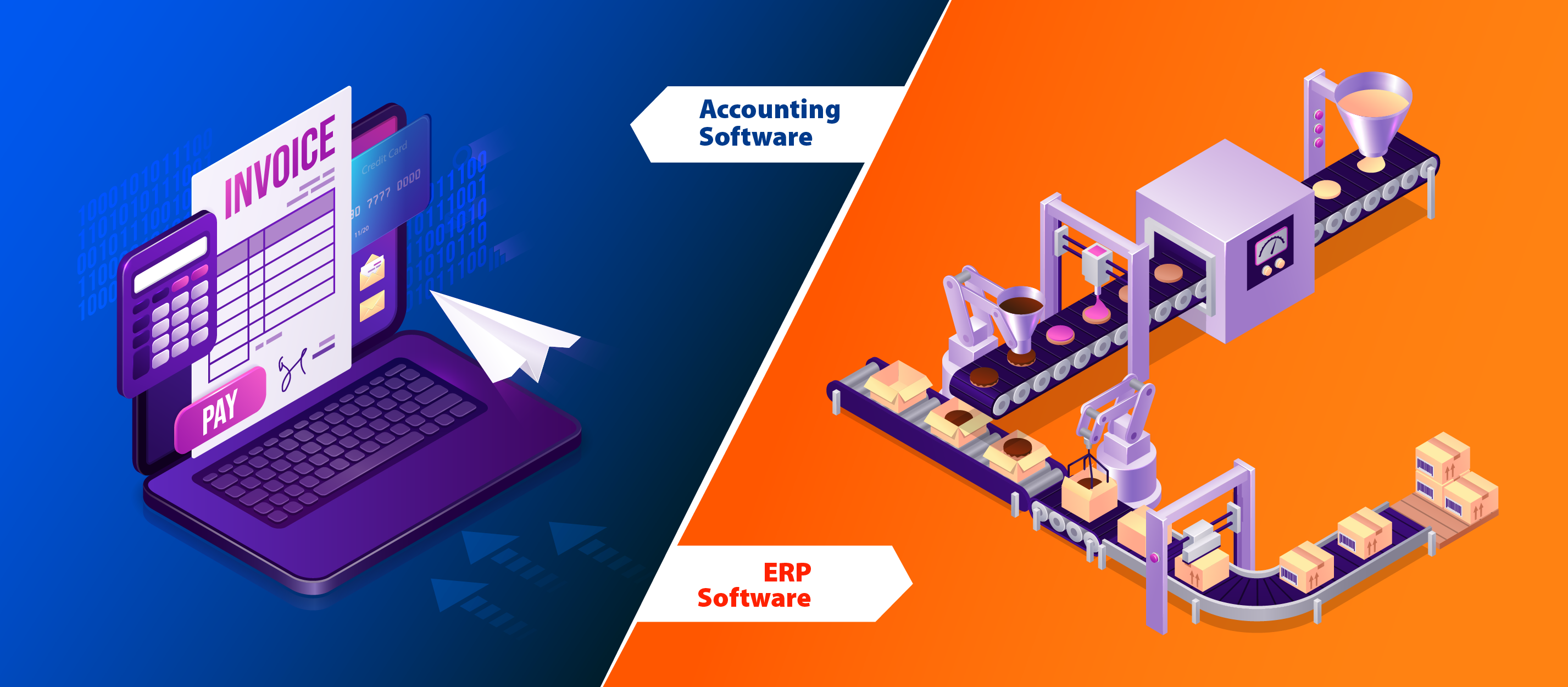Manufacturing units are more complex than anyone can contemplate. Accommodated are a number of machines, a larger number of labors, and numerous tools like temperature sensors, humidity controller etc. And then there exist a continuous need of effectively managing them for optimum utilization and better productivity. Adding to it are the pressures of up keeping the quality of the products, fully exploiting the capacity of the plant, following industry standards and good manufacturing practices, meeting compliance, and touching customer deadlines plus expectations amidst all these.
An ERP software can be a rescuer, supporting every operation and freeing up more time and resources for businesses to invest on more important aspects that increase profits. It brings together all operations of a manufacturing unit improving their facets with a range of key features and functionality.
Implementing an ERP software can improve and accelerate all the processes of a manufacturing unit from R&D, formulation to sourcing and procurement, through batch processing /production and quality analysis to delivery. Thereby, reducing manufacturing costs, better managing suppliers, boosting efficiency and gaining profits.
A number of benefits are realized by manufacturing units upon implementing an ERP, some of them are:
Better co-ordination plus In-depth Visibility
ERP brings together all departments and functions in a manufacturing unit and links them through a centralized database. Everyone from Production Manager, Inventory Manager, Shop-Floor Attender and QC Personnel gets the same version of the truth and also the real-time information. A complete visibility across what has been ordered, what is received, what is yet to be received, how much is required, which materials are critical, which lots are reaching expiry keep the production going without delays. A better collaboration is achieved not just within the plant but with the multiple warehouses, distant suppliers, distributors, and customers. Assuring faster communication, greater synchronization, and smoother processes.
Improved Efficiency
The new age ERPs are a complete package. They are designed to automate and support elongated supply chains. Manual processes can be error-prone and time-consuming. Employees may forget certain vital steps in the processing leading to inefficiency. But an ERP can standardize and accelerate procedures while keeping a keen eye on every operation. Any deviation from the standards refrains the process from moving ahead. Process halters can be traced and corrective actions can be immediately taken to ensure continuous running of plant and machinery with least compromise on quality. By reducing the number of re-runs in a manufacturing unit, efficiency increases in folds.
Better Quality
Enhanced quality is a major outcome of an ERP. It enables applying quality check at all points of the supply chain and manufacturing. Material coming in, formulas innovated, before, during and after production, upon the issue, on stagnant inventory, and during delivery. ERP can be used to monitor quality at every stage of the production cycle of goods so that the defected lot can be separated out for a re-work. This ensures high quality of the product and processes, and dramatically reduced customer complaints from customers regarding product quality.
Cost Reduction
Direct benefits of an ERP is reduced overheads and processing time. Not just this, proper planning through an ERP leads to optimum inventory level and reduced inventory turns which mean less wastage, cut down on space, labor and maintenance costs. It tracks the cash flows of the entire unit giving a crucial piece of information for personnel and managers who run or own the company. For they can easily identify where the operational costs can be reduced. Giving a vital insight into the production process, it helps in cutting down re-work or scrap thereby reducing the cost of goods sold and increasing the bottom line .
Timely Deliveries
Better planning of material, demand, and production ensures that components and raw materials are available, the plan is set to meet the orders and production is laid out in time. An ERP at the production unit does this for you, it forecasts and fetches demand, looks for available inventory, checks what is expected to arrive and how much is in production. When these inputs go in MPS/MRP result in effective production scheduling and material procurement which leads to timely order completion. Result: In-time deliveries. Better services. Happy customers. Greater profits.



















